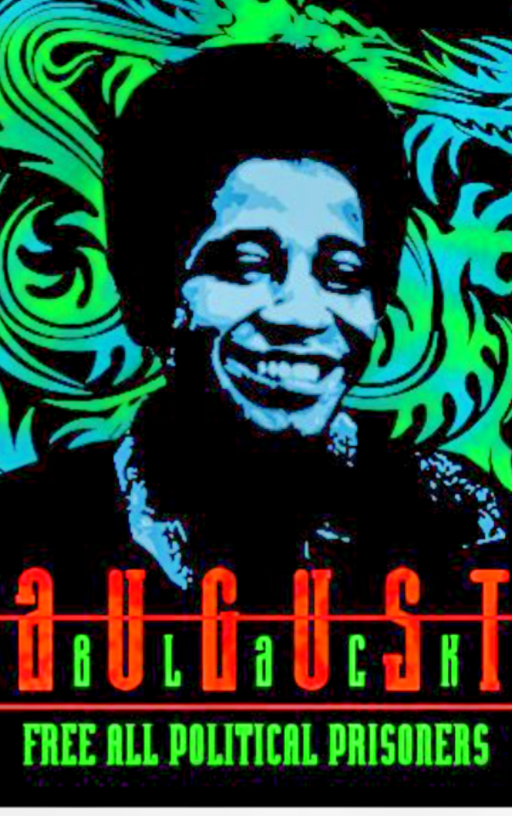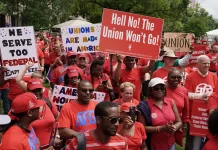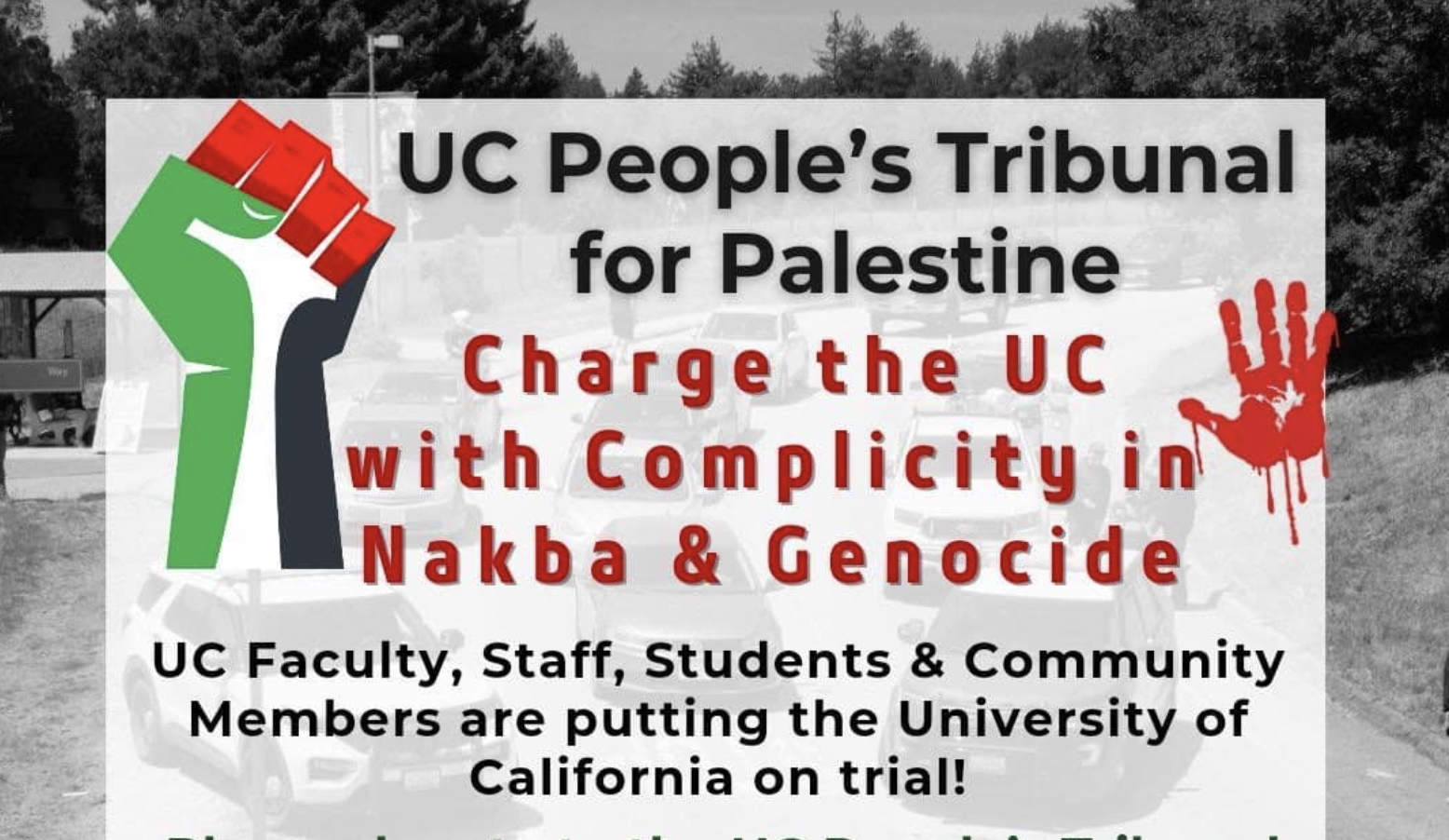“Emancipate yourself from mental slavery, none but ourselves can free our minds”
– Honorable Marcus Mosiah Garvey
This week on Capitalism, Race, & Democracy.
The legacy of Black Freedom struggles lives on. We’ll hear from Monifa Bandele of the Policy Table Leadership Team at the Movement for Black Lives.
Jihad Abdul Mumit of the Jericho Movement in conversation with the late Glen Ford.
Sekou Odinga makes the call to free all political prisoners.
From Pacifica Radio, this is Capitalism, Race, & Democracy, a collective effort by producers from Pacifica stations and affiliates across the US.
Journalist and political prisoner Mumia Abu Jamal, reflecting on the legacy of Black August. We’ll hear more from Mumia later on in the show.
***
Sixty years ago, on Saturday, August 28th, 1963, the March on Washington for Jobs and Freedom, led by Dr. Martin Luther King and others. It was notably the largest demonstration in the U.S. with more than 250,000 people in attendance. Peniel E. Joseph, wrote a CNN opinion piece stating, “No major civil rights legislation passed in 1963, but it was the most important year in the decade that transformed America., which included voices from all backgrounds.” The Civil Rights Bill was passed by Congress on July 2, 1964, and later signed by President Johnson the same day.
The bill was initially proposed in June, 1963 by President John F. Kennedy, stating it was moral, constitutional and legal to guarantee equal access to public facilities, education and to provide federal protection of the right to vote. Kennedy was assassinated that same year in Dallas, TX, November 22, 1963, by bullets of hate.
***
There were fearless Black women who helped to organize the March. Including, Daisy Bates, journalist, and advisor to the Little Rock 9. She was asked to fill in for Myrlie Evers (who had been delayed due to heavy traffic.
***
That was Daisy Bates speaking at the MOW, 1963. Bates and her husband were important voices in Little Rock. They were publishers of the Arkansas State Press, which reported violations of the Supreme Court’s desegregation rulings.
***
Today, the fight continues to protect the right to vote nationwide after the Supreme Court struck down section 4b of the Voting Rights Act in Shelby v. Holder, on June 25, 2013, leaving the power in the hands of Southern states to determine voting maps without federal oversight.
***
Last Sat, Aug. 26th the King family, Rev. Al Sharpton’s Action Network, labor leaders, activists, politicians and a host of organizations spoke at the 60th Anniversary March on Washington commemoration held at the Lincoln Memorial. Former Mayor, Congressman, and Ambassador Andrew Young, 91 reportedly one of the last civil rights leaders of his era, said …the ballot is the passport to freedom and opportunity. Rev. Sharpton reminded the crowd that the movement must continue, and “No matter how hard you make it, we’re coming anyhow…stating that our fathers fought for this (right to vote), and we’re going to maintain it!”
***
Another struggle for self-determination led by young Black activists was evolving during this era of transformation in the U.S.
Monica Moorehead, managing editor of Workers World, says “Black August played a significant role in the political development and activism for many revolutionaries and activists of her generation.”
Moorehead stated in an except on Black August published Aug 19th; that she had graduated from high school in Virginia when Jonathan Jackson (17 at the time), attempted to free his brother, George Jackson, an imprisoned leader of the Black Panther Party, Ruchell Magee, another political prisoner — who was released this year after 67 years of imprisonment — and others, in a Marin County courtroom in San Rafael, California, on Aug. 7, 1970.
***
Monifa Bandele, member of the Policy Table Leadership Team at the Movement for Black Lives, joins Marc Lamont Hill on “Black News Tonight” to share more insight about the commemoration of Black August.
That was Marc Lamont Hill of “Black News Tonight” and Monifa Bandele, member of the Policy Table Leadership Team at the Movement for Black Lives discussing Black August commemoration.
***
At 84 years of age, former political prisoner Ruchell Magee is the only survivor of the August 7, 1970 shooting in Marin County. He was seriously injured, after security forces fired their weapons to prevent Johnthan Jackson and others from leaving the courthouse. Jackson was killed along with Judge Harold Haley, William Christmas and James McClain. Reports state although McGee was cleared based on the autopsy reports of McClain’s death, he was sentenced to life in Jan. 1975. George Jackson was killed Aug. 21, 1971, for reportedly attempting to escape from prison.
On July 21, 2023, after 67 years of imprisonment, the Coalition to Free Ruchell Magee, announced that he had finally won his release. McGee has maintained he was unjustly incarcerated for decades. He argues that slavery for many has not ended, especially for Black prisoners facing a parole process that insists on the admission of guilt and responsibility prior to any consideration of release from incarceration.
***
Sekou Odinga was a leading member of the Black Panther Party and the Black Liberation Army during the late 1960s. Imprisoned for over 33 years for fighting for the freedom of Black people and the building of the Republic of New Afrika, Odinga is one of almost two dozen members of the Black Panther Party who have spent thirty years or more unjustly held in the U.S. prison system as political prisoners. In 2017 he spoke on FRED (Facing Race, Elevating Democracy) Talks, which is part of Race Forward’s Mass Freedom project.
***
Jihad Abdul Mumit is chair of the Jericho Movement and a former Black Panther party political prisoner who spent 23 years behind bars. In August of 2020 he spoke to the late Glen Ford of the Black Agenda Report about the origins and importance of Black August.
***
Commentary by award winning journalist and political prisoner Mumia Abu Jamal. Death Row: Then and Now, was produced by Prison Radio, an independent multimedia production studio producing content for radio, television, online streaming and films for 30 years to globally amplify voices of people most impacted by the prison industrial complex.
Visit www.prisonradio.org to learn more about their work.
Former political prisoner and life-long revolutionary Dr. Mutulu Shakur transitioned on July 7, 2023. Journalist and political prisoner Mumia Abu-Jamal shares words in honor of Dr. Shakur in a commentary recorded by Prison Radio.
***
And that concludes today’s edition of Capitalism, Race & Democracy. We thank all of Pacifica’s sister stations and affiliates who contribute to the production of this show. Today’s program was co-produced and edited by Polina Vasiliev and Akua Holt.
Follow us on Twitter @PacificaCRD.
MUSIC
Sweet Honey in the Rock, “Give the People the Right to Vote”
Steel Pulse, “George Jackson, Soledad”
Last Poet, “Blessed are those who Struggle”
Blues legend, John Lee Hooker featuring Carlos Santana, “Chill Out,” recorded 1995
India Arie, “Strength Courage & Wisdom”
Rahshaan Roland Kirk, “Spirits Up Above,” recorded in 1969, Atlantic Records
Poetry
Last Poets, “Blessed are those who Struggle”
LINKS
Death Row: Then and Now – Prison Radio
Workers World; The legacy of Black August
Justice on Trial, The Case of Mumia Abu Jamal





